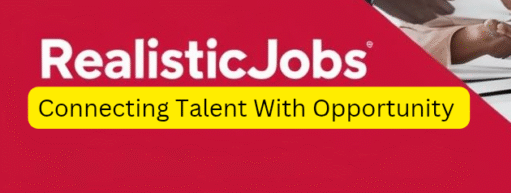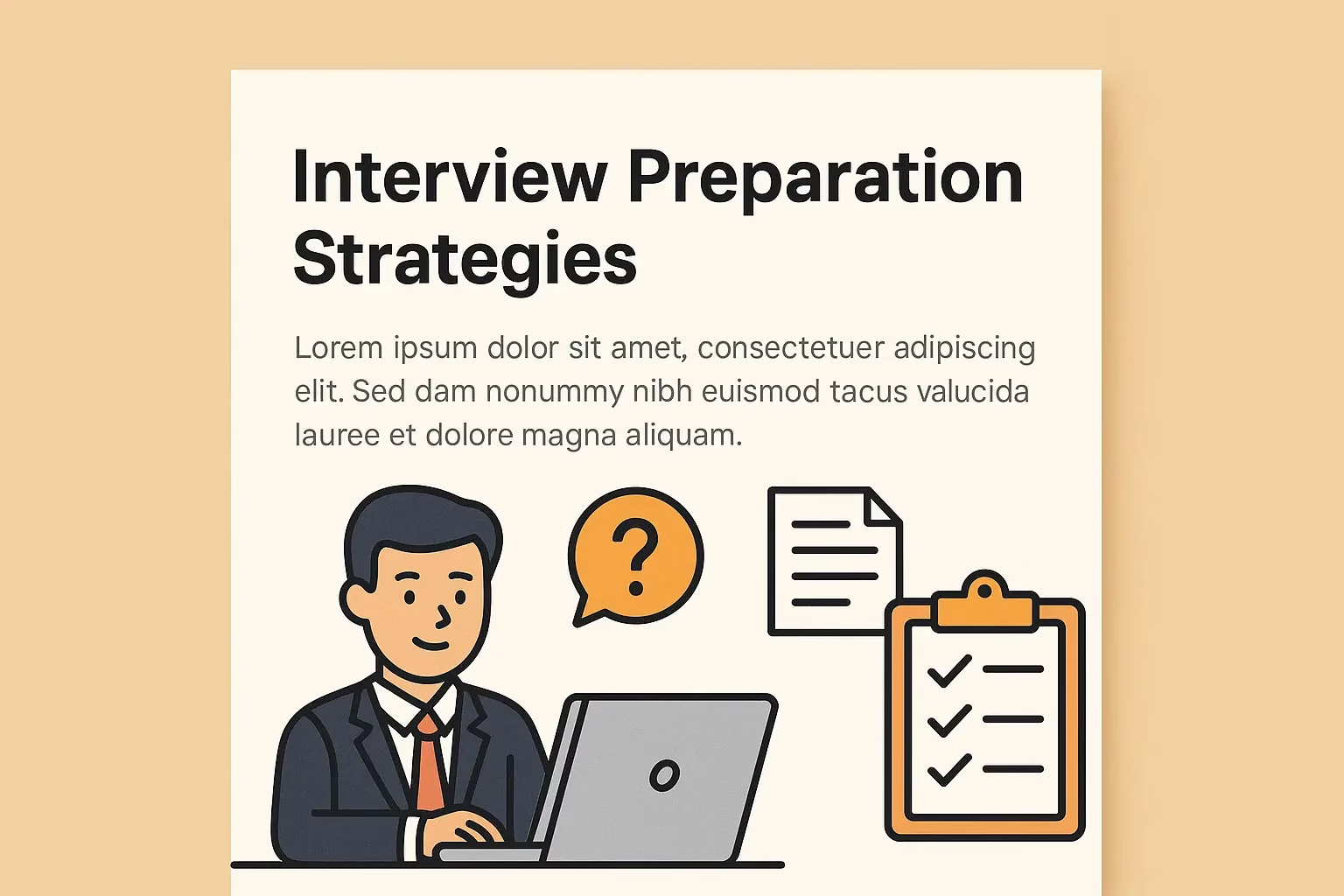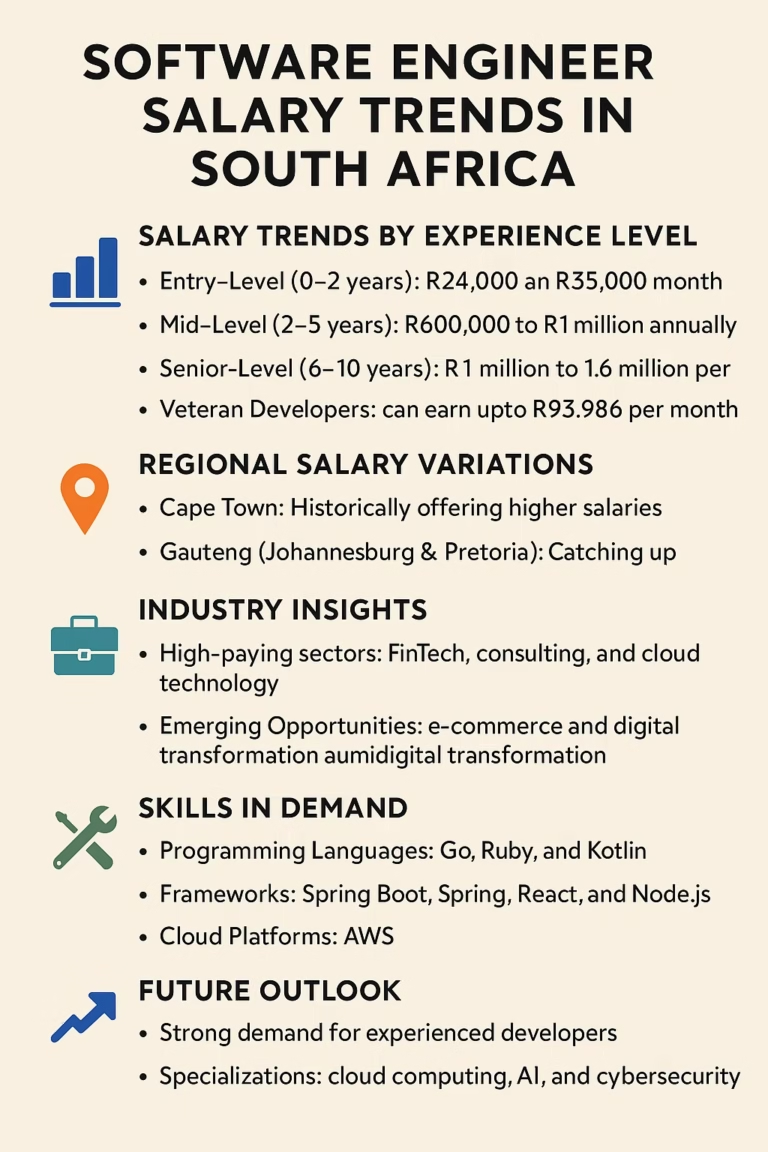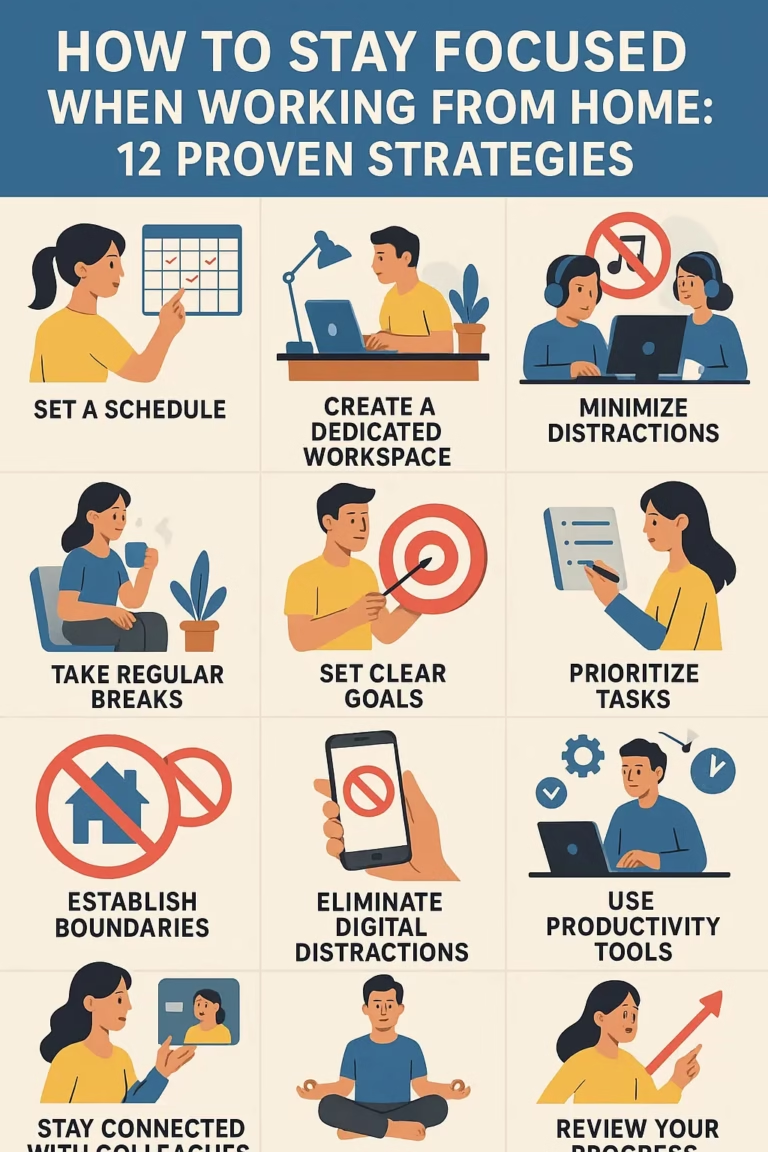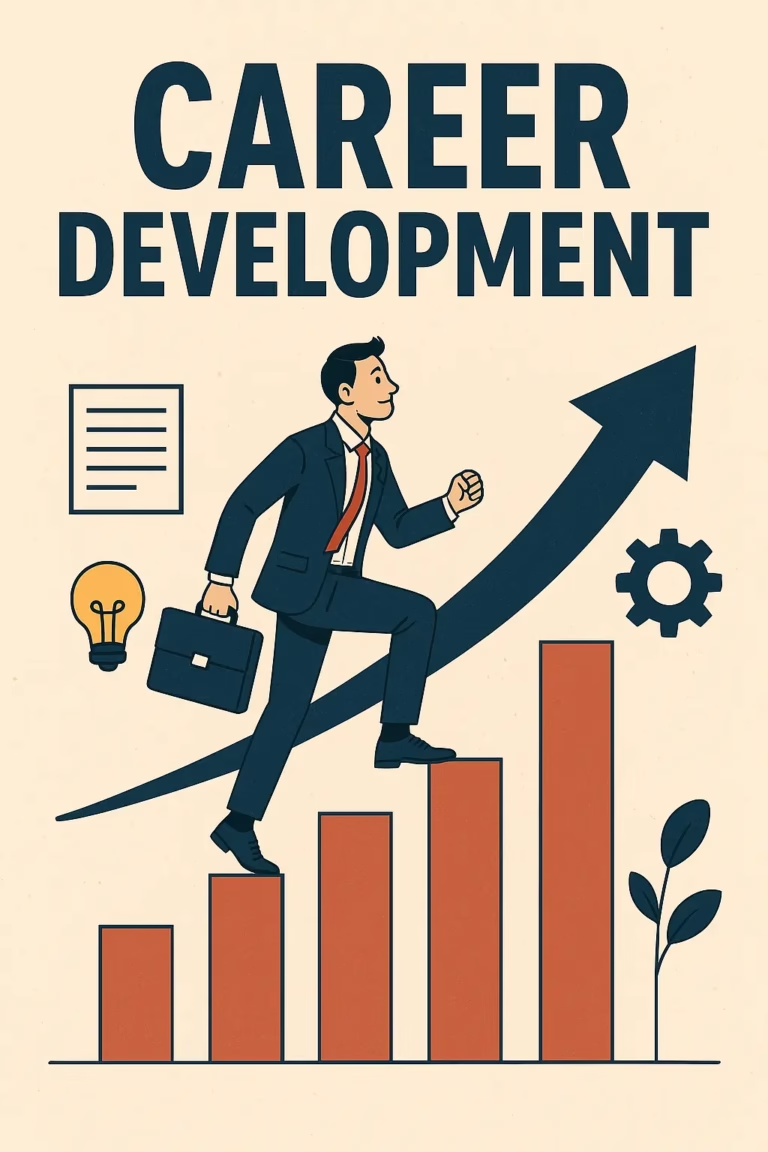Interview Preparation Strategies: How to Ace Your Next Job Interview
Preparing for a job interview can feel like stepping into the unknown. Whether you’re a first-time job seeker or a seasoned professional, interview success often comes down to one thing: preparation. The better you prepare, the more confident you’ll be—and confidence is a game changer in any interview setting. In this comprehensive guide, we’ll walk…
Preparing for a job interview can feel like stepping into the unknown. Whether you’re a first-time job seeker or a seasoned professional, interview success often comes down to one thing: preparation. The better you prepare, the more confident you’ll be—and confidence is a game changer in any interview setting.
In this comprehensive guide, we’ll walk you through the most effective interview preparation strategies that will help you make a strong impression and increase your chances of landing the job.
Why Interview Preparation Matters
Interviewing is more than just answering questions. It’s about showcasing your skills, demonstrating your cultural fit, and making a connection with your potential employer. Good preparation allows you to:
- Reduce anxiety and feel more confident.
- Articulate your strengths and experience effectively.
- Ask insightful questions that show you’ve done your homework.
- Stand out from other candidates.
1. Research the Company Thoroughly
Before you even think about what you’ll wear, you need to understand the company inside and out. This includes:
- Company mission and values: Visit the “About Us” page on their website.
- Recent news and press releases: Set up Google Alerts or check their blog and LinkedIn page.
- Products or services: Try to understand what they offer and who their target audience is.
- Company culture: Look at employee reviews on Glassdoor or similar platforms.
- Key players: Know the names and roles of your interviewers if possible.
Tip: Try to align your answers and personal values with the company’s mission during the interview.
2. Understand the Job Description
Go beyond the surface of the job ad. Break down the job description and identify:
- Core responsibilities
- Key qualifications and skills
- Recurring themes or keywords (these can hint at what they value most)
Create a list of your experiences and achievements that match these qualifications. If you’re weak in one area, prepare a plan or example that shows you’re actively working to improve.
Related: How to Write a Resume That Actually Gets You Interviews
3. Practice Common Interview Questions
While you can’t predict every question, some commonly asked ones include:
- “Tell me about yourself.”
- “What are your strengths and weaknesses?”
- “Why do you want to work here?”
- “Tell me about a time you faced a challenge at work.”
Use the STAR method (Situation, Task, Action, Result) to structure your answers. This makes your responses clear and compelling.
Pro Tip: Don’t memorize your answers word for word—it can make you sound robotic. Instead, focus on key points and practice enough to feel natural.
4. Prepare Questions for the Interviewer
Interviews are a two-way street. Asking thoughtful questions shows you’re serious and engaged. Consider asking about:
- Team structure and management style
- Growth opportunities
- Challenges the team/company is facing
- Success metrics for the role
Avoid asking about salary or time off in the first interview unless the interviewer brings it up.
5. Dress Appropriately
Your outfit sets the tone before you say a word. Research the company’s dress code and aim to dress one notch above it. If you’re unsure, business casual is usually a safe bet.
For virtual interviews, check your background, lighting, and camera angle ahead of time. A quiet, clutter-free space can make a big difference.
6. Run a Mock Interview
Ask a friend or career coach to simulate an interview with you. This gives you a chance to practice answering questions out loud, manage nervous habits, and receive constructive feedback.
You can also record yourself and review the playback. Look for things like:
- Eye contact
- Speaking pace
- Body language
- Use of filler words (“um,” “like,” “you know”)
7. Bring the Right Materials
For in-person interviews, bring multiple copies of your resume, a list of references, a notebook, and a pen. Keep these in a neat folder or portfolio.
For remote interviews, keep these documents accessible on your desktop or printed in front of you, along with any notes you want to refer to.
8. Plan Your Journey
If your interview is on-site, plan your route in advance. Aim to arrive 10–15 minutes early. Account for traffic, parking, or public transport delays.
For virtual interviews, test your internet connection, camera, and microphone at least 30 minutes before the call.
9. Practice Confidence and Mindset
Confidence isn’t just about preparation—it’s also about mindset. Use these techniques to stay positive and centered:
- Visualization: Picture yourself succeeding in the interview.
- Affirmations: Use positive statements to boost your self-belief.
- Breathing exercises: Calm your nerves with deep, slow breaths.
Remember, interviews are not interrogations—they’re conversations. The goal is to find a mutual fit.
10. Follow Up
After the interview, send a thank-you email within 24 hours. Keep it brief, polite, and personal. Reiterate your interest and appreciation for their time.
Example:
Hi [Interviewer’s Name],
Thank you for taking the time to speak with me today. I enjoyed learning more about the [Position Name] role and your team at [Company Name]. Our conversation made me even more excited about the opportunity to contribute to your mission.
Please let me know if there’s anything else you need from me.
Best regards,
[Your Name]
Final Thoughts
Interview preparation is a skill that gets better with time and practice. By researching the company, rehearsing your responses, dressing the part, and following up, you’ll be setting yourself up for success.
Remember: You’ve already impressed the company enough to land the interview. Now, it’s your time to shine.
